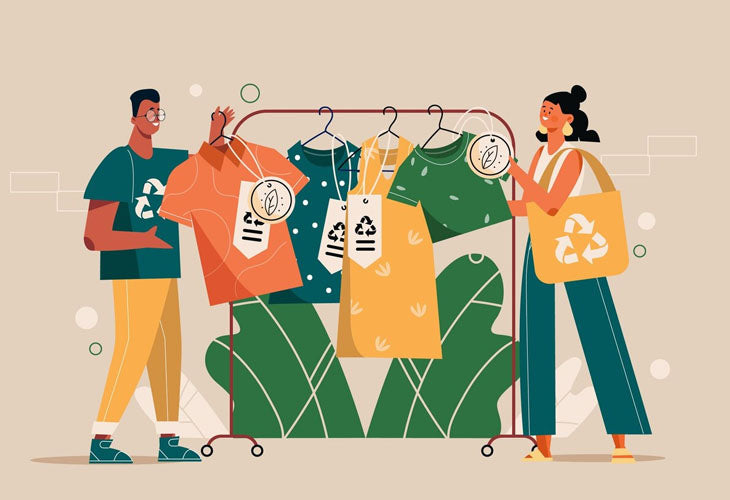Sustainable Fashion: Slowing Down the Fashion Race
2025-06-25 08:49
What is slow fashion?
Slow fashion is a fashion movement and approach that emphasizes conscious and sustainable consumption. Slow fashion is not time-based, but quality-based. It is a response to the fast fashion industry's rapid production and consumption cycles, which often prioritize fast, cheap, and disposable clothing. Slow fashion encourages a shift towards a more sustainable fashion ecosystem, focusing on responsible consumption, waste reduction, and supporting brands like James Leslie that prioritize social and environmental responsibility.

The impact of fast fashion
First, fast fashion has a huge impact on the environment.
The clothes we wear affect not only our style but also the well-being of the planet. Fast fashion relies on petroleum-based synthetic fibers such as polyester and nylon, which are low in quality and have a lifespan as short as the fashion trends themselves.
One study found that 35% of all microplastics come from these synthetic materials. It's like a micro-invasion initiated by the fashion industry itself, led by tiny plastic fragments that disrupt the food chain and release toxins. Who knew fashion could be so toxic?
We also cannot forget the issue of waste. The fleeting trends and low-grade materials of fast fashion result in a massive amount of discarded clothing. In 2019 alone, global clothing consumption reached a staggering 62 million metric tons.
Fortunately, for the sustainable fashion world, consumers have publicly broken up with fast fashion and embraced slow fashion. With plant-based materials becoming the future of the fashion industry, we can be on the cutting edge of fashion and environmentally friendly without destroying the planet.
What are plant-based fabrics?
Plant-based fabrics refer to textiles that are derived from plants rather than synthetic materials or animal sources. These fabrics are made from natural fibers obtained from various parts of plants, such as seeds, stems, leaves, or fruits. They offer a sustainable and eco-friendly alternative to traditional fabric choices.
Tencel and Modal are plant-based fabrics made from wood pulp, usually from sustainably managed forests. These fabrics are manufactured using a closed-loop process, with recyclable solvents to minimize waste. Tencel and Modal are known for their silky smooth texture, breathability, and moisture-wicking properties, making them a popular choice for sportswear and underwear.
Cotton is the most popular plant-based fabric, however, Traditional cotton farming often involves the use of harmful pesticides and requires a large amount of water , so organic cotton becomes a more sustainable option. It is grown from non-GMO seeds without pesticides, insecticides, or fertilizers.
Linen is also a well-known plant-based fabric, made from the fibers of the flax plant, known for its durability, moisture-wicking properties, and ability to keep the body cool in hot weather.
Bamboo fiber is a newer plant-based option that has gained attention in recent years for its softness, breathability, and antibacterial properties similar to modal.
Plant-based fabrics play a significant role in slow fashion and have many advantages. They are typically hypoallergenic, biodegradable, renewable, and have a smaller environmental impact compared to synthetic alternatives. These fabrics also tend to be comfortable to wear, allowing the skin to breathe and regulate body temperature.
James Leslie's luxurious underwear includes two premium qualities of ultra-fine modal and mesh modal. Ultra-fine modal fibers are finer than regular modal, resulting in a softer, more form-fitting, and more breathable plant-based fabric. Using plant-based fabrics helps build a more sustainable and environmentally friendly fashion industry, and we want to be a part of it!
Recommend News
Tel:0595-88298222 88297222
Fax:0595-88291440
E-mail:fuli_yinshua@163.com
Address:No.7, Road 1, Huahai Industrial Park, Shenhu Town, Jinjiang City, Fujian Province, China.
All rights reserved © Jinjiang Fuli Packaging Printing Co.,Ltd. SEO Powered by:www.300.cn Quanzhou

